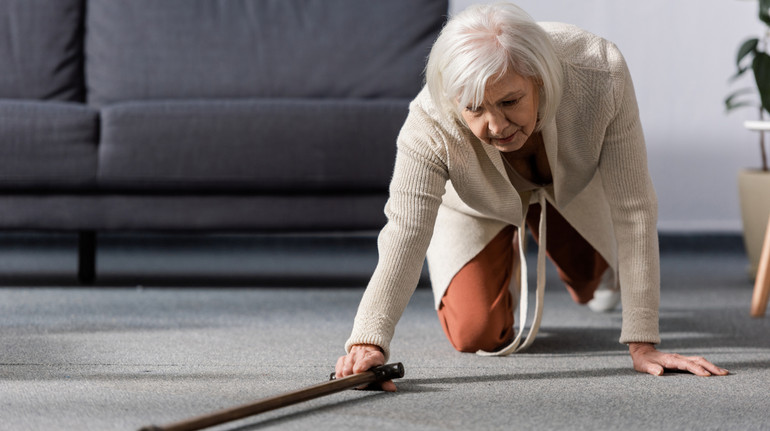Fear of fall increases the risk of falling by 60% – study

Fear of falling in older people increases its probability by 60% – scientists
Haydmitriy/Depositphotos
In the elderly, who are worried about a possible fall, the risk of falling increases by 60%.
This is evidenced by the results of the study, Posted In Oxford Acadenaic, writes New Atlas.
”The concern about falls is very common among the elderly – almost every second person under the age of 86.
Fear is associated with a decrease in quality of life and independence, poor rehabilitation results and increased risk of weakness, disability and getting into homes for the elderly « – says the author of the study, Professor Kim Delber from the Center for Page Research, Balance and Neuroscience Research Australia).
Scientists have analyzed 53 scientific works with the participation of more than 75 thousand people aged 60. They evaluated how much the initial level of anxiety about the possible fall affects the frequency of real falls in the future (on average for 6 months).
The fall of the fall was measured using standardized tools-Falls Efficiency Scale-International (FES-I) and a short version of this scale. Each additional score on the FES-I scale increased the risk of future falling by 3%, and in the short version-by as much as 8%.
At an even simpler level (when a person was just asked: « Are you afraid to fall?« ) The risk increased by 60% of those who were in accordance with the affirmative.
”Our analysis showed that the elderly who are very worried about the ability to fall, much more often do fall« , – says researcher and professor Kim Delbeyer.
Most elderly people do not tell about their fears even a doctor or relative. This may be due to shame, feeling of « old age » or fear of losing autonomy. That is why the authors of the study recommend medical professionals, families and guardians to initiate a dialogue.
However, this systematic inspection had several restrictions. First of all, there was a large variety of respondents, and people with significant cognitive or neurological disorders were excluded.







